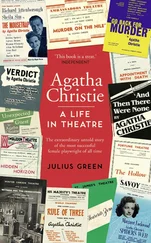Alice Green - Town Life in the Fifteenth Century, Volume 2
Здесь есть возможность читать онлайн «Alice Green - Town Life in the Fifteenth Century, Volume 2» — ознакомительный отрывок электронной книги совершенно бесплатно, а после прочтения отрывка купить полную версию. В некоторых случаях можно слушать аудио, скачать через торрент в формате fb2 и присутствует краткое содержание. Жанр: literature_19, foreign_antique, foreign_prose, Историческая проза, на английском языке. Описание произведения, (предисловие) а так же отзывы посетителей доступны на портале библиотеки ЛибКат.
- Название:Town Life in the Fifteenth Century, Volume 2
- Автор:
- Жанр:
- Год:неизвестен
- ISBN:нет данных
- Рейтинг книги:5 / 5. Голосов: 1
-
Избранное:Добавить в избранное
- Отзывы:
-
Ваша оценка:
- 100
- 1
- 2
- 3
- 4
- 5
Town Life in the Fifteenth Century, Volume 2: краткое содержание, описание и аннотация
Предлагаем к чтению аннотацию, описание, краткое содержание или предисловие (зависит от того, что написал сам автор книги «Town Life in the Fifteenth Century, Volume 2»). Если вы не нашли необходимую информацию о книге — напишите в комментариях, мы постараемся отыскать её.
Town Life in the Fifteenth Century, Volume 2 — читать онлайн ознакомительный отрывок
Ниже представлен текст книги, разбитый по страницам. Система сохранения места последней прочитанной страницы, позволяет с удобством читать онлайн бесплатно книгу «Town Life in the Fifteenth Century, Volume 2», без необходимости каждый раз заново искать на чём Вы остановились. Поставьте закладку, и сможете в любой момент перейти на страницу, на которой закончили чтение.
Интервал:
Закладка:
Blomefield, iii. 168. Gross, ii. 43, 175, 220. Nott. Records, i. 445-6, 159, 201; ii. 47, 241. See also the serjeant-at-mace in Sandwich (Boys, 504-5), at Nottingham (Rec. iii. 73).
72
For typical market rules see Reading, Gross, ii. 204-7. Southampton, Ibid. 220.
73
See Schanz, i. 621-2.
74
The loaf was changed in weight not in price with the price of corn; the lowest rate conceived by ancient writers was 12 d. a quarter of corn; the unit of bread was 1/4 d. loaf. (Hist. MSS. Com. ix. 175.) Twelve kinds are mentioned in the fifteenth century, but in the Assize only three sorts were recognized – Wastel or white or well-baked bread; Coket (seconds); Simnel, twice baked bread, used only in Lent. (English Guilds, 102. Boys’ Sandwich, 543.)
75
Manorial Pleas, Selden Soc. xxxviii. For control of bread and beer at the time of Domesday see Rep. on Markets, 18. In Norwich supervisors of bread were appointed before 1340. The system seems to have worked well, for no troubles as to the assize of bread are recorded, as in other towns. Leet. Jur. of Norwich, Selden Soc. xxxvi.
76
Rep. on Markets, 25.
77
Hist. MSS. Com. ix. 288. In certain departments, as in the fixing of the prices of bread and ale, in measures, in various rules about buying and selling, the towns simply carried out laws made by the central government; while in other things such as the regulation of the price of meat, poultry, fish, and wine, they were from time to time given authority to fix their own standard.
78
Andover, Gross, ii. 310. Cutts’ Colchester, 154-7.
79
In 1383 the price of unsweetened wine was practically left to the towns for about a hundred years. Schanz, i. 647. For common consumption wine was sweetened with honey and flavoured with blackberries. Archæol. Cantiana, vi. 328.
80
Liber Albus, 289, 373-86, 686-91, Liber Custumarum, 117-120, 385-6. Statutes 22 Edward IV. cap. 2. Hist. MSS. Com. ix. 172.
81
Ricart’s Kalendar, 81-84.
82
Piers Ploughman. Pass. xxii. 398-404.
83
Nott. Rec. iii. 357.
84
Select Pleas of the Crown, Selden Soc. 88-9. Hist. MSS. Com. ix. 172. Gross, i. 45. English Guilds, 353, 381-4.
85
English Guilds, 353.
86
Journ. Arch. Ass. xxvii. 476. English Guilds, 392.
87
Gross, ii. 1 175. Rep. on Markets, 16.
88
English Guilds, 390, 392, 406.
89
The town liberties did not always extend over the whole town territory. The liberties of Carlisle were confined to a small district in the centre of the modern town, and did not extend beyond the limits of this “ancient city.” Hereford up till 1830 was divided into two parts, the In-Borough where the inhabitant householders had the elective franchise and the Out-Borough comprising all beyond the In-Borough that was under the corporate jurisdiction. Papers relating to Parl. Representation, 1829-32.
90
Collectanea, ii. (Oxford. Hist. Soc.), 13.
91
Freeman’s Exeter, 143.
92
Gross, ii. 262. Rot. Hund. i. 356, 3 Ed. i. When an unusual press of people was drawn to the town by some festival or public occasion orders were issued to allow country dealers to bring food within the walls and sell it without paying toll or any other manner of charge. Davies’ York, 167.
93
Hist. MSS. Com. v. 606-7. Gross, i. 48-9. See Vol. I. p. 182, n. 4. Sometimes the monopoly was given to the townspeople (Gross, i. 46; ii. 28, 46, 205, 255); in other cases to the Merchant Guild which had power to enroll non-residents among its numbers. (Gross, i. 47, 52, 122, 139, 153, 191, 218.) In cases of abuse there was an appeal to the king. (Rep. on Markets, 25, 60.)
94
Picton’s Municipal Records of Liverpool, i. 17, 18, 28. It is evident that the system of protection was not universally popular, for when in 1515 a commission was sent to examine why Liverpool had so decayed that its contributions to the Exchequer had fallen off, a complaint was made that the mayor had caused the decline in the customs revenue by the enfranchisement of strangers living in the borough, who were thus freed from the payment of dues that had once gone to the Crown. (Picton’s Memorials, i. 38.) Leland writing in 1533 says: “Irish merchants come much thither as to a good haven,” and in the margin he adds, “at Liverpool is a small custom paid that causeth merchants to resort.” The trade of later days had even then begun: “Good merchants at Liverpool, much Irish yarn that Manchester men do buy there.” (Ibid. i. 46.)
95
Fosbrooke’s Gloucestershire, i. 204-8. For the trade with Wales, ibid. 156-7. See also the rovers of the Forest of Dean and the troubles of Tewkesbury and Gloucester, in Stat. 8 Henry the Sixth, cap. 27. There were similar disputes between Shrewsbury and Worcester as to the limits of their jurisdiction over the Severn. (Owen’s Shrewsbury, i. 300.)
96
To encourage the carriage of corn in some places, probably in many, while the toll on every horse laden with a pack of marketable goods was 1 d[.] , a corn-laden beast was charged only one farthing. (Materials for Hist. Henry VII. vol. ii. 332.) For a case of toll illegally levied on victuals see Rep. on Markets 57.
97
Collectanea (Oxford Hist. Soc.), ii. 120; 50-51. In the sixteenth century when the victuallers’ laws were no longer enforced to any extent, other measures were found necessary to keep a constant supply of corn in the bigger towns.
98
See Collectanea (Oxford Hist. Soc.), ii. 49.
99
Riley’s Mem. 180.
100
Ibid. 181.
101
Nottingham Records, iii. 354. Hist. MSS. Com. ix. 172-5. Ibid. v. 531.
102
Preamble of Canterbury regulations for brewers and bakers drawn up in 1487. (Hist. MSS. Com. ix. 173.)
103
Ibid. For suburban trades see girdlers and embroiderers in London. (Schanz i. 608. Rolls Parl. iv. 73.)
104
For the attempt at free trade in Winchester in 1430, following the example of Coventry and New Sarum, see Gross, ii. 261. Another rule of the assembly in the same direction was passed in 1471, apparently in the attempt to find a new source of income for payment of the ferm. Ibid. 262.
105
Muniments of Canterbury. In Southampton there was a class of Out-burgesses who did not live in the town; they were allowed to vote for a mayor and members of Parliament, but might not be present at a common council. (Davies’ Southampton, 197.)
106
Preston Guild Rolls, xvi. xx.
107
For breach of this custom see Rep. on Markets, 57 (Wallingford), 60-61. (Bosworth, Lafford.)
108
Preston Guild Rolls, xii.
109
Ibid. xii. xxiv. xxix. xxx.
110
Rep. on Markets, 61.
111
In 1209 there were fifty-six foreigners in the Shrewsbury Guild; forty years later they had increased to 234. (Hibbert’s Influence and Development of English Gilds, 18.)
Читать дальшеИнтервал:
Закладка:
Похожие книги на «Town Life in the Fifteenth Century, Volume 2»
Представляем Вашему вниманию похожие книги на «Town Life in the Fifteenth Century, Volume 2» списком для выбора. Мы отобрали схожую по названию и смыслу литературу в надежде предоставить читателям больше вариантов отыскать новые, интересные, ещё непрочитанные произведения.
Обсуждение, отзывы о книге «Town Life in the Fifteenth Century, Volume 2» и просто собственные мнения читателей. Оставьте ваши комментарии, напишите, что Вы думаете о произведении, его смысле или главных героях. Укажите что конкретно понравилось, а что нет, и почему Вы так считаете.












